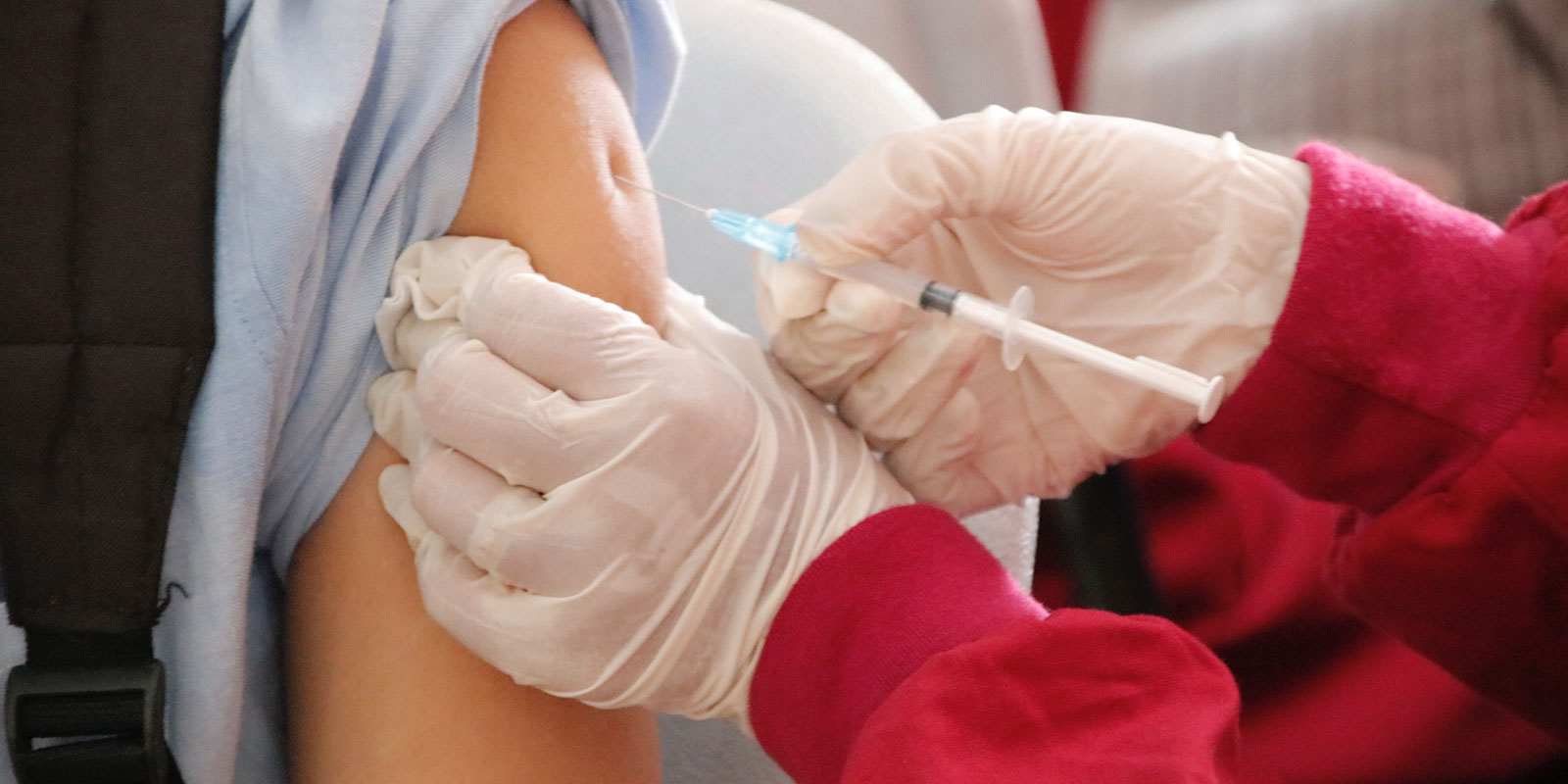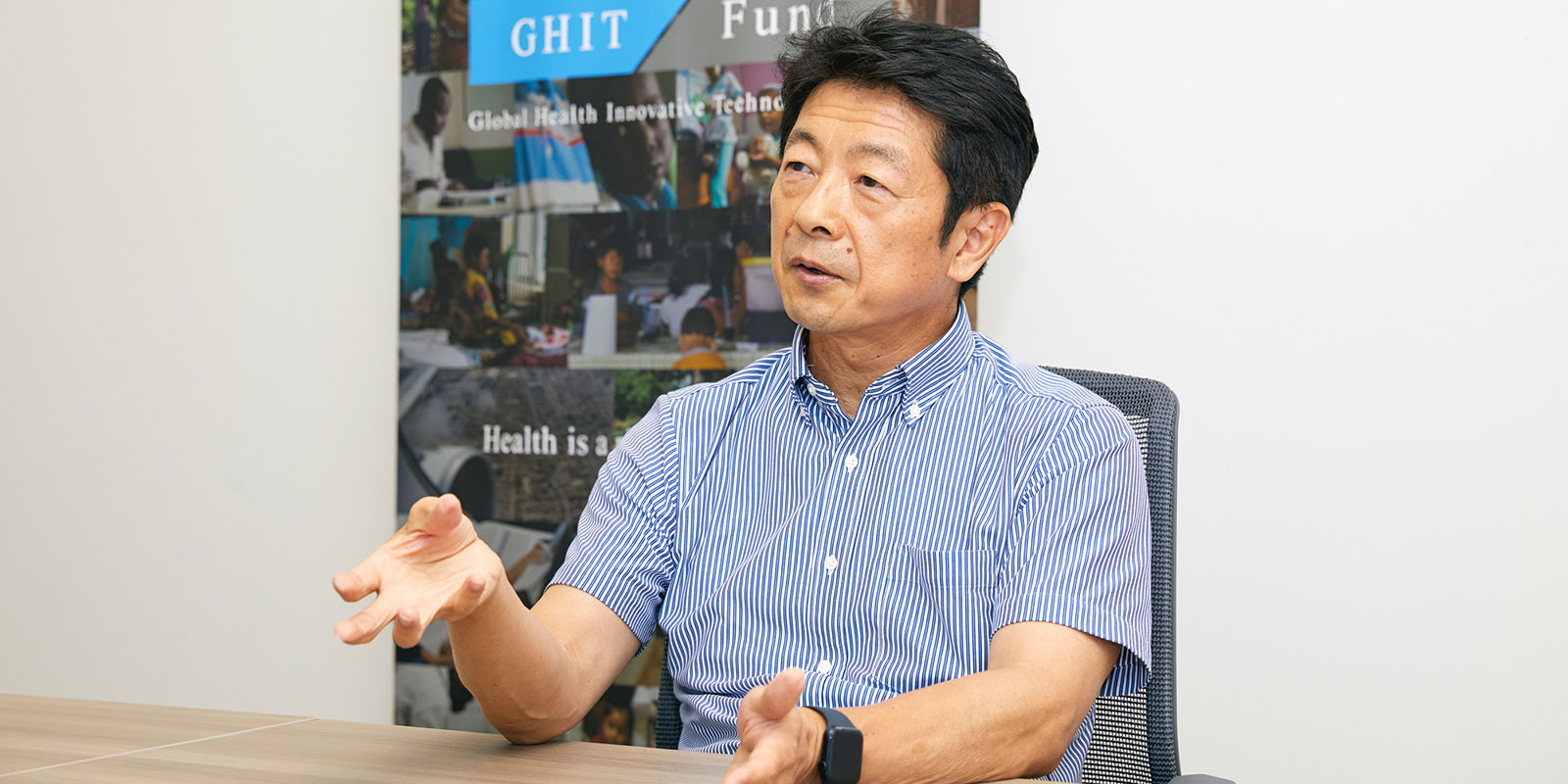All better
The Japanese-led GHIT Fund is making a global difference with its support for life-saving drug development. CEO Osamu Kunii tells Ili Saarinen why tropical diseases still kill millions around the world and how his organization is working to achieve good health and wellbeing
Societies worldwide breathed a collective sigh of relief late this spring, when the World Health Organization declared an end to Covid-19 as a global health emergency. While the pandemic may have appeared a rare and shocking event to the vast majority of people in affluent countries, gripped by the illusion that life-threatening infectious diseases were a thing of the past, in developing countries Covid struck a familiar, deadly chord.
A chronic lack of funding hampers the development of cures for the diseases decimating poorer countries
Ailments including malaria, tuberculosis, and NTDs, or neglected tropical diseases—a group of infections that mainly affect impoverished populations in the global south—kill over two million people annually. This toll is roughly equal to the reported number of annual deaths globally from Covid-19 during the pandemic, but while tens of billions of dollars were expended to develop Covid vaccines and treatments in record time, a chronic lack of funding hampers the development of cures for the diseases decimating poorer countries.
 The GHIT Fund has invested ¥30 billion into fighting illnesses afflicting the world’s poor | Ed Us/Unsplash
The GHIT Fund has invested ¥30 billion into fighting illnesses afflicting the world’s poor | Ed Us/Unsplash
“Such medicines [would never see the light of day] if the decision were left up to market forces,” says Dr. Osamu Kunii, CEO of the Global Health Innovative Technology (GHIT) Fund. Pharmaceutical companies can hardly expect to profit from drugs needed by some of the world’s most poverty-stricken people and therefore won’t invest to develop them. That’s where a difference-making role can be played by actors such as the GHIT Fund, a Japan-headquartered global public-private partnership backed by the Japanese government together with the Bill & Melinda Gates Foundation, the UK’s Wellcome, the UN Development Programme, and many of the world’s leading pharma firms.
The fund was established in 2013, in part to protect and make effective use of Japan’s valuable knowhow and experience in developing diagnostics, drugs, and vaccines for infectious diseases, and over the past decade has invested some ¥30 billion into fighting illnesses afflicting the world’s poor. “We join together academia, firms, and governments around the world [to develop treatments, vaccines, and diagnostics], and partner with people in developing countries to conduct clinical trials and promote new treatments,” says Kunii, a public health specialist with more than 30 years of experience ranging from working with emergency medical response to natural disasters and conflicts in the developing world to leadership roles at Unicef and the Swiss-based Global Fund.
“We join together academia, firms, and governments around the world to develop treatments, vaccines, and diagnostics”
 Osamu Kunii, CEO and Executive Director at the GHIT Fund | Kisa Toyoshima
Osamu Kunii, CEO and Executive Director at the GHIT Fund | Kisa Toyoshima
A medical breakthrough
After a decade of “planting seeds and cultivating them,” as Kunii puts it, in the form of supporting more than 100 research and development projects, the GHIT Fund is on the brink of a breakthrough: the first product it has helped develop could soon receive regulatory approval. The European Medicines Agency may shortly issue a decision that would clear the way for clinical use of a potential new drug for treating schistosomiasis in children.
“If approved, this potential pediatric treatment option could be used to treat more than 50 million children around the world”
That disease, transmitted through water by parasites that multiply inside aquatic snails, affects the intestines and urinary tract and is known to have been prevalent since antiquity in communities without access to clean water. An effective drug for adult patients exists, but treating young children is difficult even today, and schistosomiasis remains responsible for some 200,000 deaths every year. “If approved, this potential pediatric treatment option could be used to treat more than 50 million children around the world,” says Kunii.
While successfully developing one difference-making drug in ten years is considered a great achievement in the world of pharmaceutics, the GHIT Fund is not about to take its foot off the gas. “We have 12 other projects in the clinical trial stage,” says Kunii, “and in our next five-year strategy we’ll seek to speed up the [product] development process even further to maximize impact with the limited resources at our disposal, in order to save the lives of vulnerable people in need.” And with the Japanese government having pledged another $200 million in funding over the next five years, the GHIT Fund’s battle against overlooked diseases could soon yield more invaluable results.